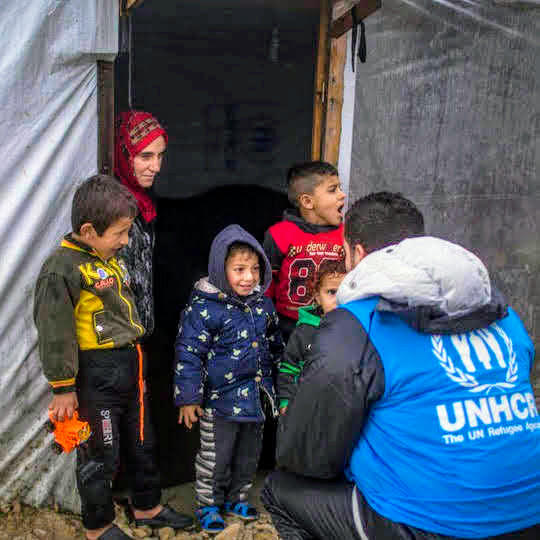Vulnerability Assessment of Refugees of Other Nationalities - 2019
Lebanon, 2019
Get MicrodataIdentification
UNHCR_LBN_2019_VARON_v2.1
Vulnerability Assessment of Refugees of Other Nationalities - 2019
| Name | Country code |
|---|---|
| Lebanon | LBN |
Since 2016, the Vulnerability Assessment of Refugees of Other Nationalities (VARON) has been a key tool for advocacy and program design.
The key objectives of the VARON include: • Providing a multi-sectoral update of the situation of refugees from Iraq and other countries in Lebanon through an annual household survey. The survey covers key indicators related to multiple sectors including protection, shelter, water and hygiene, health, livelihoods, socio-economic vulnerability, food security and more. • To enhance the targeting for the provision of multi-purpose cash assistance. The data gathered through the VARON, particularly on expenditure, is used to build econometric models, which are used to determine eligibility for multi-purpose cash and food assistance.
Household and individual.
Version
v2.1: Edited, cleaned and anonymised data.
Scope
The questionnaire included key indicators on household demographics, legal documentation, safety and security, shelter, WASH, health, food security, livelihoods, expenditures, food consumption, debt, coping strategies and assistance, as well as questions specifically relating to women, children and people with disabilities.
The scope includes:
- key indicators on household demographics
- safety and security
- accomodation
- health
- food security
- livelihoods
- expenditures
- food consumption
- debt
- coping strategies and assistance
- intention to return
- education
- legal documentation
| Topic |
|---|
| Health and Nutrition |
| Health |
| Education |
| Livelihood & Social cohesion |
| Food security |
| Water Sanitation Hygiene |
| Community Services |
Coverage
National coverage
Producers and sponsors
| Name |
|---|
| UNHCR |
| UNICEF |
| WFP |
Sampling
The assessment surveyed a total of 665 refugee households (1,823 individuals) of Iraqi and other nationalities registered with UNHCR Lebanon.
The total number of households in the UNHCR registration database as of March 2019 was used as the sampling pool from which the targeted
sample was selected. Sampling occurred through simple random sampling, separately for Iraqi refugees and refugees of other nationalities
to ensure representative results for each population group. The distribution of this refugee population in Lebanon in concentrated in 2 of the 26 districts (Beirut and Mount Lebanon). As such, no geographical stratification was applied to the sample methodology.
Weights were assigned to each nationality group (Iraqi and non Iraqi) according to the population of refugees registered in the country. The weighting system was used to compensate for the unequal probabilities of a household/individual being included in the sample.
Survey instrument
The questionnaire included key information on household demographics, arrival profile, registration, protection, shelter, WASH, assets, health, security, livelihoods, expenditures, food consumption, coping strategies, debts and assistance, as well as infant and young feeding practices.
The questionnaire is a household survey administered typically with the head of household or another adult household member. The interview took around 1 hour per household to complete.
Data collection
| Start | End |
|---|---|
| 2019-04-22 | 2019-05-03 |
| Name |
|---|
| Makhzoumi foundation |
| Caritas |
| Social, Humanitarian, Economical Intervention for Local Development |
| World Vision International |
Data Access
UNHCR, WFP, UNICEF (2019) Vulnerability Assessment of Non Syrian Refugees in Lebanon, UNHCR microdata library, https://microdata.unhcr.org
Contacts
| Name | Affiliation | |
|---|---|---|
| Curation team | UNHCR | microdata@unhcr.org |
Metadata production
UNHCR_LBN_2019_VARON_DDI_v1.0
2020-08-10
